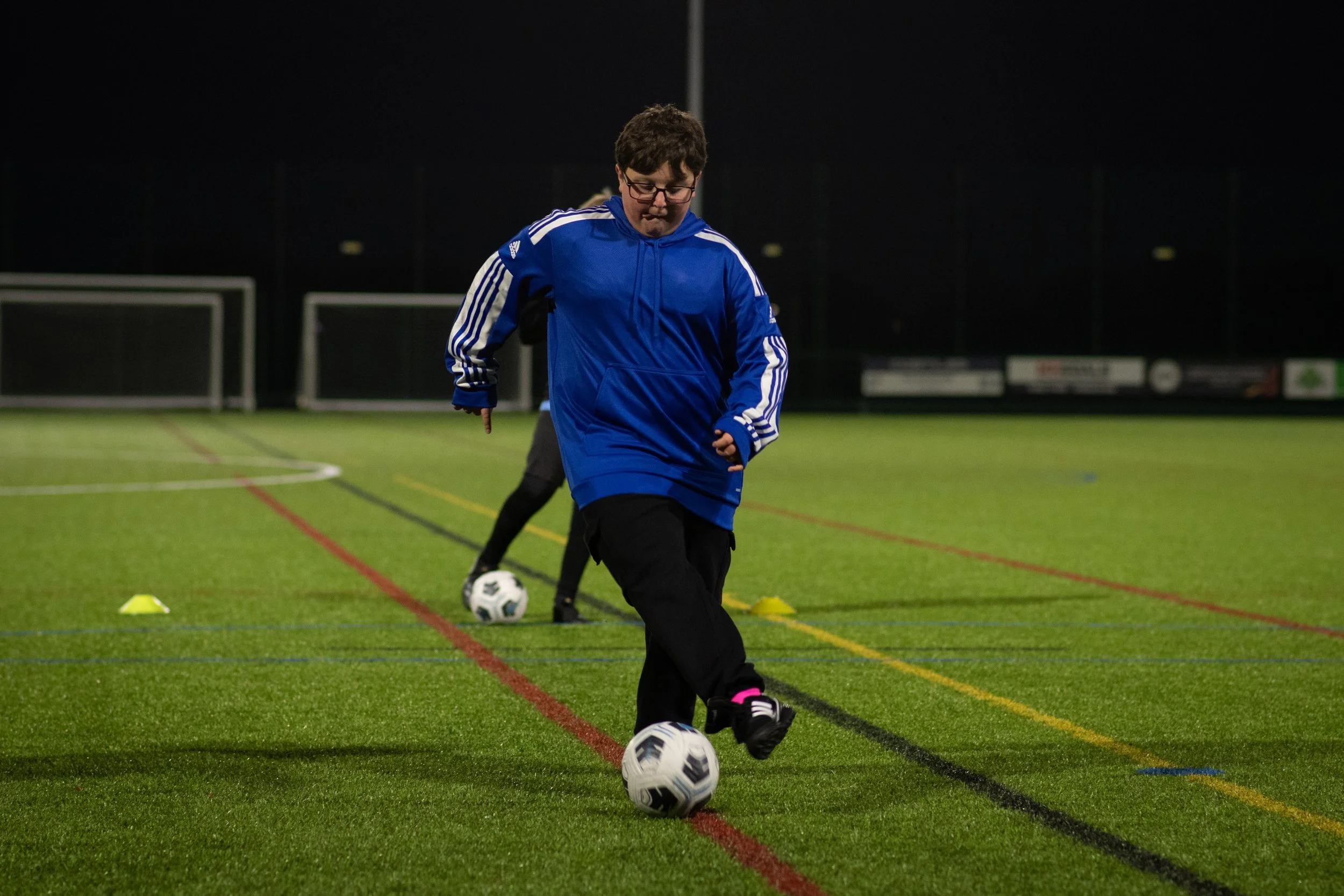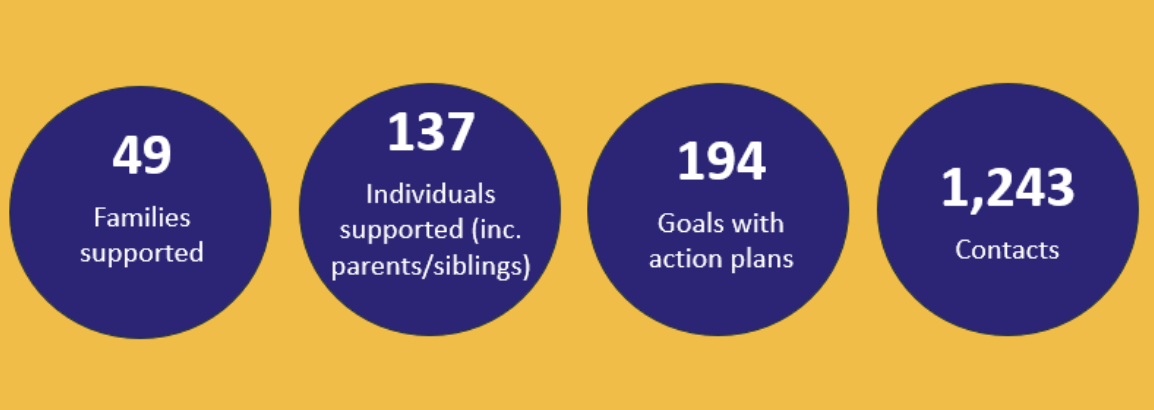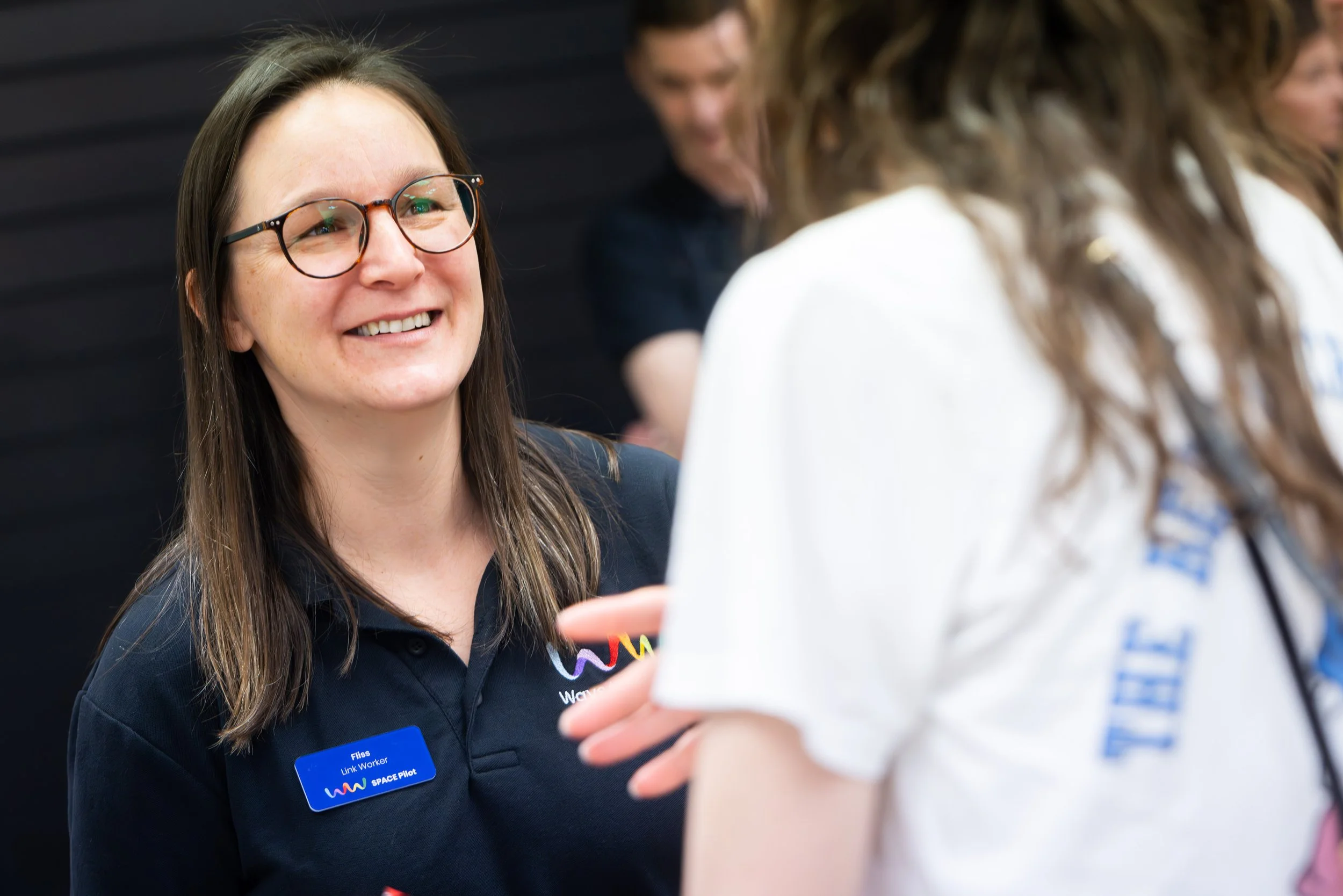
SPACE Pilot
Quick Links:
Background
SPACE CYP (Social Prescribing And Community rEsources for Children and Young People) was developed collaboratively with Dr Anna Basu as a partnership project between Ways to Wellness, the Great North Children's Hospital and Newcastle University.
More than half of all families with a child with complex healthcare needs, such as those resulting from neuro-developmental impairments and conditions, have financial difficulties; nearly half express unmet non-medical needs, and a third express difficulty accessing non-medical services (Kuo D.Z. et al, 2011). SPACE Pilot tests the impact of whole family psychosocial support for children with complex, chronic conditions - integrating the hospital with community settings.
This is the first project of its kind. Most social prescribing services were previously based in primary care, focused on adults. This project, which recently expanded after being named one of six in the country to receive a grant from NHS Charities Together’s Innovation Fund, explores the impact holistic, personalised care from a specialist social prescribing link worker can have for children and families accessing hospital services.
We offer non-medical support to complement the work of clinicians at Great North Children’s Hospital. We support the whole family to feel more confident in managing their health and wellbeing. Our link workers focus on ‘what matters to you’, so action planning and goal setting is guided by the child and their family. Where appropriate, we link families to support and services in the community that help them achieve their goals.
SPACE Pilot link workers support families in a number of ways, including:
Getting involved in community groups and activities
Accessing emotional and practical support, including specialist services
Arranging assistance with school/education
Signposting to advice about benefits and grants
Identifying appropriate support groups
Making lifestyle choices
Help with gaining confidence
Getting more active
Help with healthy eating and cooking
Help developing positive relationships.
Support is provided for up to six months.
Who we help
The service is for people who fit the following eligibility criteria:
✅ Great North Children’s Hospital in-patients and day patients
✅ Aged up to 17-years-old
✅ With a long-term, complex medical condition (eligible children will have multiple healthcare professionals involved in their long-term follow up)
✅ Living in the Newcastle/Gateshead/North Tyneside/Northumberland area (signposting can be offered to those living further afield)
We also support the families of eligible children, including siblings who have additional unmet non-medical needs.
Who is not eligible?
✅ Children considered too medically unwell for a referral to be appropriate (e.g. in paediatric intensive care)
✅Currently going through active social services investigation e.g. Section 47
✅Acute severe mental health presentation requiring e.g. Crisis team or other acute psychiatric support
✅ Children who are receiving similar support from a different organisation, e.g. Teenage Cancer Trust.
To learn more about the project or refer a patient, email nuth.spacepilot@nhs.net.
If you are unsure about eligibility, please get in touch. Even if a child is not eligible, we may be able to offer advice around other support services.
Impact
These videos tell some of the stories from the professionals and clients we have worked with so far.
Gain the perspective of one of the families supported by the project.
Understand the experience of one of the voluntary sector organisations we've worked with.
Hear the experience of the professionals we've worked with.
A story of one of the families we worked with.
The ‘Your Move’ project in collaboration with Northumberland FA.
Evaluation and evidence
The first phase of the pilot was completed in February 2024, and the second phase in March 2025. Phase 3 is now underway and will run until March 2028.
Phase 1: Project evaluation
Project monitoring and evaluation was undertaken throughout phase one of the project, to help us better understand the impact of the intervention
Wellbeing improvements
A key part of our evaluation was our use of the Support Star™ from Triangle, a validated tool for assessing the needs of children and young people facing serious illness.
Support Star™ data was available from 18 families at the time of evaluation, and these scores were compared with the same families at baseline. There was a mean increase in total scores of 3.94 (median increase four points).
As well as the Support Star™ we used the following questionnaires to assess and monitor outcomes:
Quality of life (EQ-5D for adults; CHU-9D for children, including proxy version)
Warwick-Edinburgh Mental Wellbeing Scale (parents)
Three questions to gauge financial strain on the family
Exploring social prescribing for children and young people in community and hospital settings
We were also part of a project looking at social prescribing for children and young people in community and hospital settings. The project was funded by NIHR Applied Research Collaboration North East and North Cumbria. The research was led by Newcastle University, and aimed to identify the components of effective social prescribing for children and young people.
Our objectives were to:
Obtain in-depth understanding of social prescribing for children and young people through a mixed methods evaluation
Identify and disseminate practical recommendations for optimal social prescribing service provision
Understand how policy can support wider adoption of social prescribing for children and young people.
Research and engagement
Podcast and editorial
Research papers and posters
Research papers will be shared here as they are published:
Media
Partners and funders
The project is delivered in collaboration with Newcastle University and the Great North Children's Hospital. It is funded by a grant from the Innovation Challenge Fund at NHS Charities Together. Funding is provided by Newcastle Hospitals Charity.
Project evaluation is delivered in partnership with Newcastle University.
Evaluation of phase one of the project was part-funded by the National Institute for Health Research (NIHR) Applied Research Collaboration North East and North Cumbria (NIHR200173). The views expressed are those of the author(s) and not necessarily those of the NIHR or the Department of Health and Social Care.
6. Patient information
If you are eligible and would like support, speak to your clinician at the Great North Children’s Hospital. If appropriate, they can refer you to the project.
7. Testimonials
Kathryn - parent and SPACE Pilot client
“Lauren’s helped us with a lot…things that probably we wouldn’t even think about either…you’ll have a conversation, and the good thing is you can tell that you’re being listened to because they’ll pick up on stuff I’m not even asking for and go ‘well actually this might help’.”
SPACE Pilot client
“It opened my eyes to what is actually out there. It’s given me a bit more confidence that in the future when things come up that I know there is stuff that I can turn to.”
Paediatric Rheumatologist, Great North Children’s Hospital











